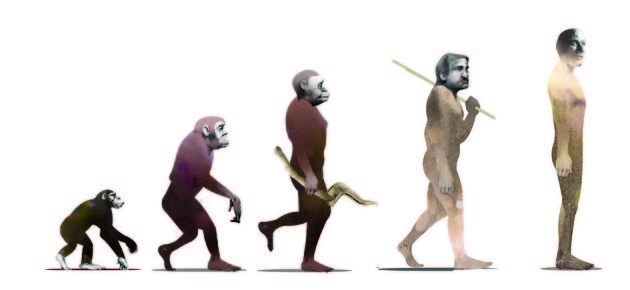Source – treehugger.com
Apes’ abilities appear to be entirely misunderstood because research has failed to measure them fairly and accurately, according to a new report.
I’ve always marveled at how shortsighted humans can be, especially when it comes to other species. We’ve got such a superiority complex that we fail to fully appreciate the remarkableness of things like an octopus completely changing colors and texture in seconds, or a tiny songbird figuring out how to fly 1,500 miles nonstop over the Atlantic. In a human, these traits would be worthy of a Harry Potter character; in an animal? Meh. Cool, but animals can’t write and make pizza and get in rocket ships and fly to the moon, so how smart can they really be? (And of course there are many of us who appreciate the brilliant wonders of the animal kingdom, but I’m talking more about the general anthropocentric mindset.)
More and more, however, it seems that scientists are starting to rethink how we think about animals thinking. Frans de Waal explores the topic in his book “Are We Smart Enough to Know How Smart Animals Are?” in which he gives hundreds of examples of surprising intelligence from non-human species, including many instances where other animals appear to be smarter than we are.
Among others on the same track, a new analyses published in the journal Animal Cognition argues that what we think we know about apes’ social intelligence is based on wishful thinking and flawed science.
“The fault underlying decades of research and our understanding of apes’ abilities is due to such a strongly-held belief in our own superiority, that scientists have come to believe that human babies are more socially capable than ape adults. As humans, we see ourselves as top of the evolutionary tree,” says study author Dr David Leavens, of the University of Sussex. “This had led to a systematic exaltation of the reasoning abilities of human infants, on the one hand, and biased research designs that discriminate against apes, on the other hand.”
As the University of Portsmouth notes:
The starting point in comparative psychology research is that if an ape makes a pointing gesture, say a point to a distant object, the meaning is ambiguous, but if a human does it, a double standard of interpretation is applied, concluding that humans have a degree of sophistication, a product of evolution, which other species can’t possibly share.
“In examining the literature, we found a chasm between evidence and belief,” says Professor Kim Bard. “This suggests a deep commitment to the idea that humans alone possess sophisticated social intelligence, a bias that is often not supported by the evidence.”
To put it in perspective, the authors point out that this isn’t the first time science has seen such a “pervasive collapse of rigor.” A century ago, scientists believed that northern Europeans were the most intelligent of our species, thanks to a big fat dose of bias. “Such bias is now seen as antiquated, but comparative psychology is applying the same bias to cross-species comparisons between humans and apes,” the researchers say.
And the examples provided in the study really bring the point home. In one set of studies, researchers compared children raised in Western households, “steeped in the cultural conventions of nonverbal signaling,” with apes raised without the same cultural exposure. But then they were all tested on Western conventions of non-verbal communication. Of course the human children are going to do better. I would like to see them put the human kids in the wild and see them forage for food and communicate with other apes; who’d outperform there?
Of the approaches so far in measuring apes’ abilities, the authors conclude, “the only firm conclusion that can be made is that apes not raised in western, postindustrial households do not act very much like human children who were raised in those specific ecological circumstances, a result that should surprise no one.”
